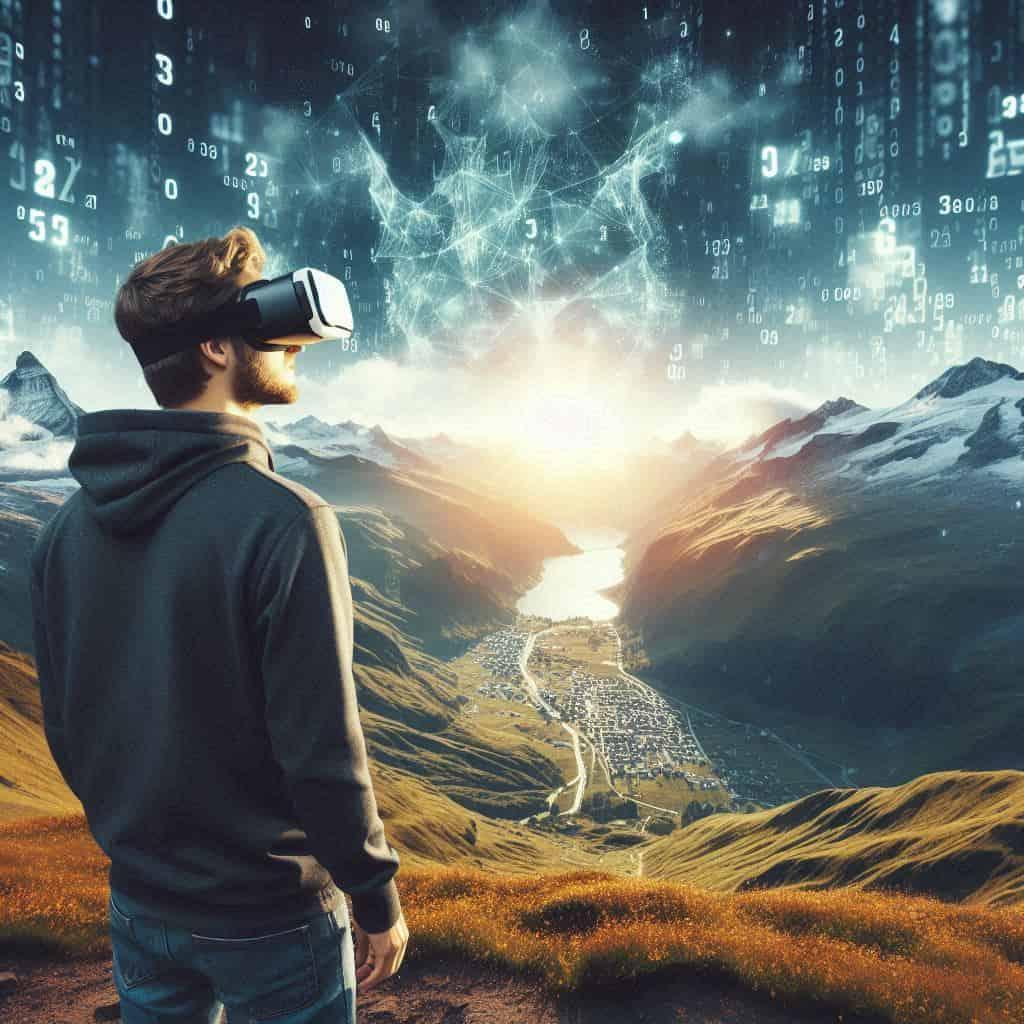Psylaris has created a new virtual reality application for the treatment of stress symptoms.

Stress, stress and more stress. Half of the Dutch workforce lies awake from time to time because of it. And besides work, there are numerous other sources in daily life that make us fret. So how nice is it to be able to retreat to an Alpine landscape in the blink of an eye? Psylaris, a software company based in Limburg, developed a relaxation module based on virtual reality (VR). "People find peace and then can get back to it three times as hard," said Mike Verhiel, co-founder and CEO of the company.
Who thinks of VR quickly thinks of gaming. But increasingly, simulation environments are being used in mental health (GGZ) settings. Psylaris has been at it for years. The company, founded in 2017, developed VR modules for trauma, anxiety and depression symptoms, among other things. "But in recent years, we were often asked if we could also use the knowledge we gained to help people with stress and burnout symptoms," Verhiel explains. "We've been working toward this for a long time, and soon the product will finally hit the market." To this end, Psylaris receives funding from LIOF, the regional development company for Limburg. LIOF stimulates projects that seek solutions to societal challenges, including in health care.
VR offers an answer to, among other things, the long waiting lists, the shortage of therapists and high costs in healthcare. With the former trauma module, for example, patients go from one to three full treatments per week because they can use the glasses independently at home without the need for a therapist. With the relaxation module, they relieve the burden of care even further. This is because it also allows the user to work independently.
A mountain peak, a sunset
.The user - a client, practitioner or "regular" employee - can choose from several forms of relaxation, the CEO explains. First, there is the passive relaxation module, where you find yourself in a relaxing environment. For example, on a boat in the canals of Utrecht, or on a mountaintop, enjoying a sunset. There is also the active module, which guides you through meditation or breathing exercises. "What is so beautiful is that with VR glasses you have many more possibilities than in the real world. You can play with colors, visualizations, and much more, to create the conditions that best suit a person." Users can choose their own environment.
Medical hypnosis
The third form, to be added later to the relaxation module, is medical hypnosis. "That's something different from the standard image of hypnosis, which comes up for many people," Verhiel smiles. Patients in the hospital are put into deep relaxation, which reduces the need for pain medication for the symptoms they have. "In France, for example, almost every hospital employs a specialist in this field, to counteract pain."
For the hypnosis application, several scientific studies are currently underway at Thomas Moore, the largest college in Flanders. Although official results are not yet in, the interim findings look promising, Verhiel cautiously concludes. "We have seen a significant drop in average heart rate: a strong indirect indicator of lower stress levels."
The fact that the relaxation module is "doing its job well" is no coincidence. Psylaris can draw on six years of experience. For example, the company has been offering EMDR-VR (Eye Movement Desensitization and Reprocessing) for years. This is a therapy that helps people process trauma and anxiety through eye movements, sounds or taps, making memories less emotionally charged. Psylaris also developed modules for exposure therapy and addiction treatment.
Verhiel: "So we know what works well, and what does not, when it comes to the communicative approach toward clients, for example. We experimented with dozens of voice actors. The way voices are spoken in the app is based on years of data collection. As a result, we discovered that the overall tone of the application should be soothing, but should sound brighter at certain times to help the user." Verhiel is proud of the new product. "We were able to develop an effective module where people can take a break from their daily lives, find peace of mind, and then get on with normal life more productively."
A traditional market
It is quite a challenge to introduce an innovative VR-based solution to the mental health industry, Verhiel knows. "Traditional sales methods don't work here; building that trust takes time." But once the trust is there, people are certainly open to innovative therapy. "That makes us confident about bringing our new product to the market as well," the CEO concludes. Psylaris Relax, as the relaxation module is called, will be offered to healthcare professionals and companies starting July 1.
This article was created in a collaboration between LIOF and Innovation Origins.